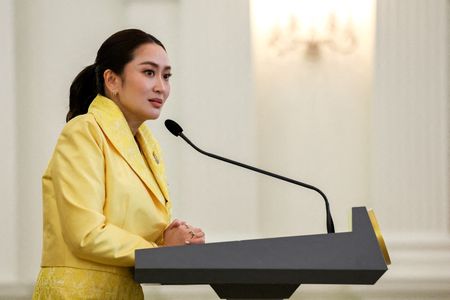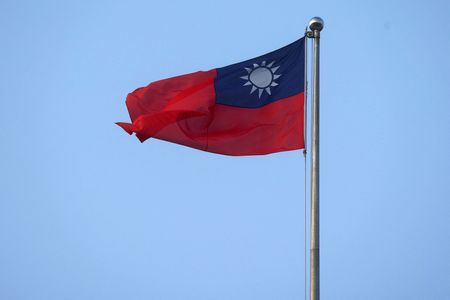By Tetsushi Kajimoto
TOKYO (Reuters) -A tax panel of Japan’s ruling Liberal Democratic Party (LDP) on Thursday agreed to raise the country’s key taxes to pay for the defence budget, but stiff opposition among lawmakers effectively delayed a decision on when to implement the politically unpopular move.
The tax plan, following through on Prime Minister Fumio Kishida’s commitment to raise taxes to double defence spending to 2% of gross domestic product by 2027, had become bogged down in wrangling among lawmakers who objected to near-term tax increases that could hurt Japan’s fragile economy.
The tax plan will be written into an annual tax-code revision for the next fiscal year from April, with the aim of gaining formal government approval on Friday, Yoichi Miyazawa, chief of the ruling party’s tax panel, told reporters after the panel’s meeting.
“Participants agreed to leave the defence tax plan entirely to me,” Miyazawa said.
However, the tax hikes will kick in “at an appropriate time” in fiscal year 2024 or thereafter, he said, stopping short of committing to exactly when to implement the tax hike or suggesting a possible delay.
The delay would highlight challenges for Kishida as his popularity dwindles and he juggles conflicting priorities that pit restoring Japan’s tattered public finances against addressing geopolitical risks from an assertive China and unpredictable North Korea and Russia.
Japan is struggling to secure funding sources for planned defence spending of 43 trillion yen ($315 billion) over the next five years, which could further complicate its aim of balancing the budget – excluding new bond sales and debt servicing – by fiscal year 2025.
Kishida has resisted calls from within his own party to issue additional bonds to fund defence spending. However, the government also recently floated issuing construction bonds to develop Self-Defence Forces facilities, Kyodo news reported, which would mark an unprecedented use of infrastructure-related debt for military purposes.
Among the three taxes, including a tobacco tax, targeted for increases, the special income tax was originally intended to help rebuild areas hit by the 2011 earthquake and tsunami in northeast Japan, which was unrelated to military spending.
The corporate tax hikes would consist of a surtax of 4% to 4.5%, with exemptions for small firms with annual income of up to 24 million yen, Miyazawa said.
Many LDP lawmakers had objected, saying raising corporate taxes could undermine the push for wage increases the government considers necessary for sustained growth and inflation.
Under the defence build-up plan, Kishida told Miyazawa to come up with a tax hike plan that would secure about 1 trillion yen annually from the fiscal year starting April 2027.
($1 = 136.6100 yen)
(Reporting by Tetsushi Kajimoto; Additional reporting by Yoshifumi Takemoto and Takaya Yamaguchi; Editing by Chang-Ran Kim, Edmund Klamann and Mark Porter)










